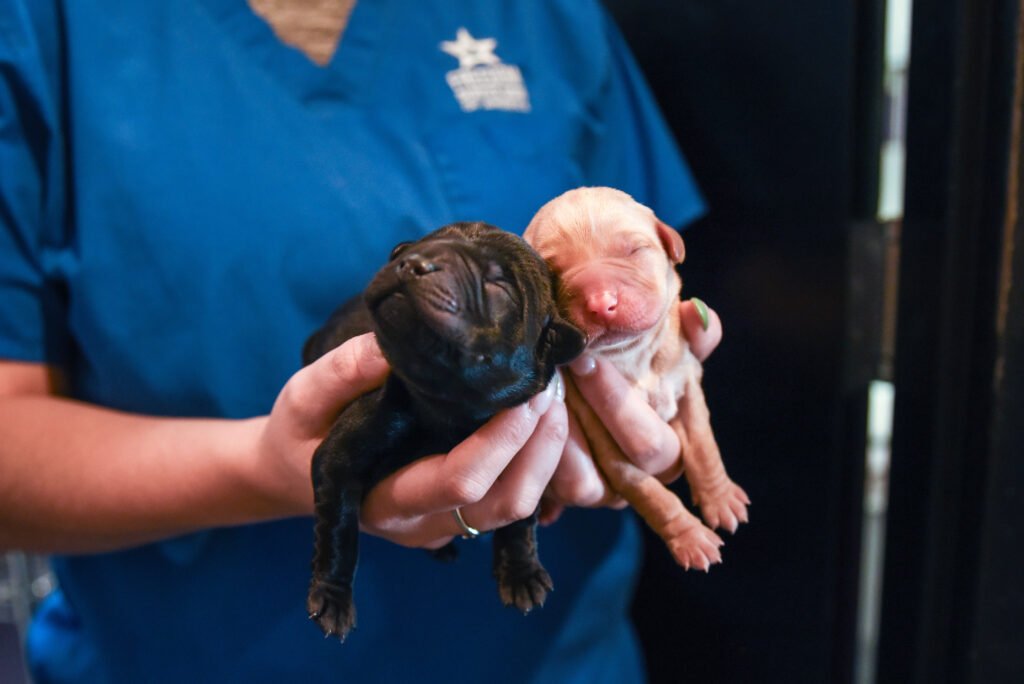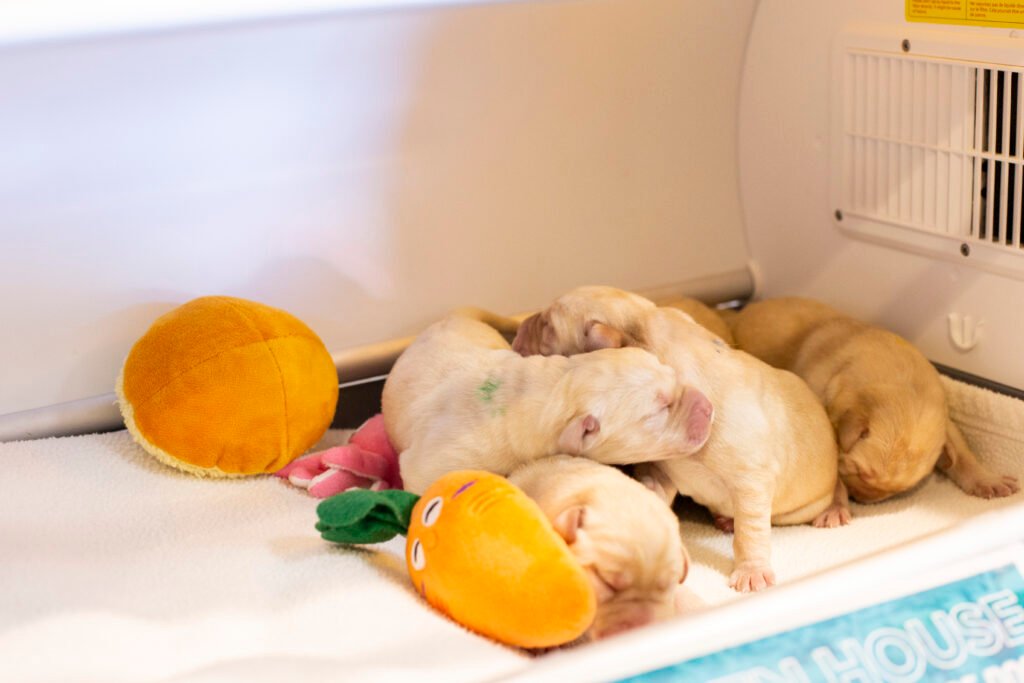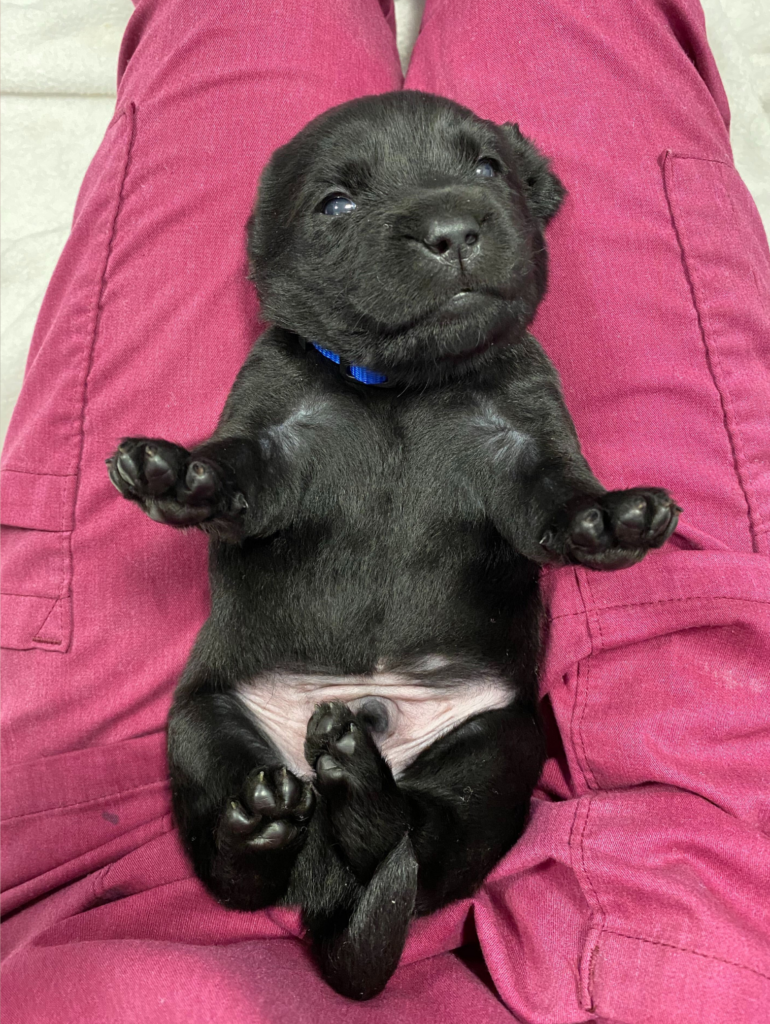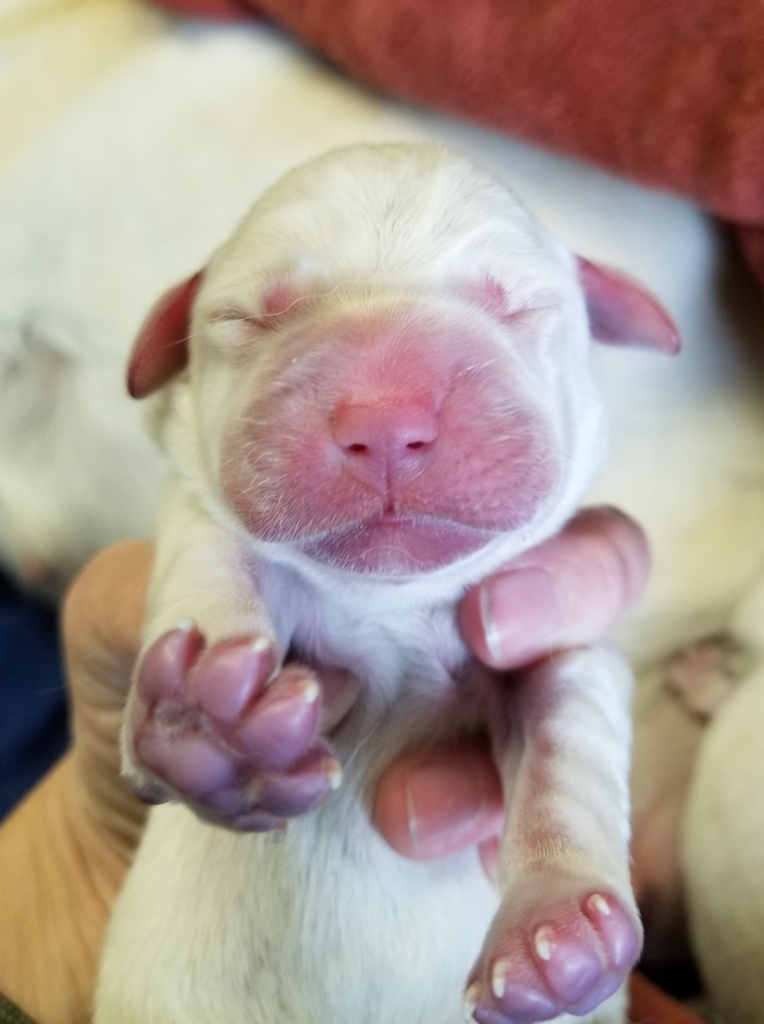FSD Puppy Socialization: Weeks 1 and 2

What does it mean to be confident? For a Freedom Service Dog trainee, being confident means staying calm and self-assured in any situation alongside their handler. People with disabilities rely on their service dog everywhere they go, from hospitals, to parks, to restaurants, and stores, making it essential for FSD dogs to remain confident in a variety of settings.
At FSD, we know that raising stable, resilient, and dedicated adult dogs starts from day one in our nursery. During the first eight weeks of a puppy’s life, they experience significant physical and mental growth that shapes who they become as adults. In these crucial weeks, our FSD puppies with a purpose receive daily socialization that promotes their natural development and encourages qualities we seek in our assistance dogs. In this blog, we’ll explore developmental milestones the puppies reach in their first 2 weeks and the socialization activities we facilitate to help them reach their full potential.
Week 1: The First Few Days

Did you know that puppies are born unable to see, hear, or regulate their body temperature? For their first week of life, they primarily sleep and have very limited mobility. They completely rely on their mothers for food, hydration, and warmth.
During their first few days, our dedicated nursery team introduces the puppies to various stimuli within their den. Since they can only feel and smell, we present scent boxes and textured toys and surfaces to encourage sniffing and exploration.
When the puppies are just 3 days old, we begin Early Neurological Stimulation (ENS)—a series of gentle exercises designed to expose the puppies to mild stressors. Created by the U.S. Government while raising their working dogs, it’s shown that ENS enhances puppies’ ability to cope with stress, strengthens their cardiovascular system, and boosts their immune response. Typical ENS exercises include tickling the puppy’s paws with a cotton swab, holding them upright, holding them with their head pointing downward, holding the puppy on their back, and placing them on a damp towel for brief periods.


Week 2: Awakening the Senses
By 2-weeks-old, the puppies’ eyes and ears begin to open for the first time. While the world is still a bit fuzzy to them, their senses develop quickly. They also gain pigmentation and build more front leg strength to help them get around easier.
More stimuli is introduced to the puppies’ environment, such as textured surfaces, large stuffed animals, and visual stimuli such as high-contrast flash cards. Fringe is hung above their kennels to create overhead visuals and get the pups used to their backs being touched to prevent body sensitivity. Mounds and hills are created under their bedding to encourage them to use their chest and shoulder muscles, enhancing their mobility.

During this week, puppies are safely exposed to various scents they will encounter in everyday life. They become familiar with medical scents like isopropyl alcohol and disinfectants, as well as personal care products like lotion and sunscreen. Additionally, they smell different foods, such as BBQ sauce and ranch dressing. This early exposure helps them remain more focused and less distracted by scents as they mature.
2-week-old pups receive more handling and practice ENS exercises to promote comfort with body handling and prevent body sensitivity. At this age, more structured activities are slowly introduced. One such activity involves a staff member or volunteer placing puppies on the opposite end of the den than their mother. The puppies are then required to use their sense of smell and their increasing mobility to locate her. Not only does this activity build physical strength and sense of smell, but it also helps the puppies build critical thinking and problem solving skills.
Stay tuned to learn more about the socialization process of FSD puppies during weeks 3 and 4!
If this story made your tail wag, you may also like:
Contact Erin Conley at econley@

